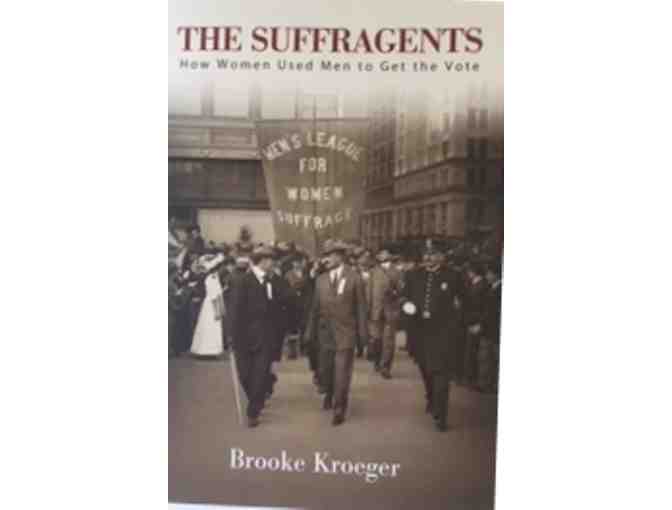In Suffragents: How Women Used Men to Get the Vote,

Item Number: 127
Time Left: CLOSED
Description
In Suffragents: How Women Used Men to Get the Vote, Brooke Kroeger examines the critical role that men played in the women’s suffrage movement through the creation and mobilization of the Men’s League for Women’s Suffrage. In her work, Kroeger argues that the leaders of the women’s suffrage movement “used” men to gain voting rights during the 1917 state suffrage campaign in New York. From 1908 to 1920, the New York Men’s League hosted fundraisers, participated in marches, gave public speeches, and lobbied government officials for the cause. According to Kroeger, the Men’s League was a “momentous, yet subtly managed development in the suffrage movement’s seventh decade” (p. 1). While Suffragents focuses exclusively on the New York branch of the Men’s League, Kroeger acknowledges that the organization was much larger in scope and created a national network of prominent men who advocated for suffrage through their public presence, such as socialist Max Eastman, muckraker Upton Sinclair, historian Charles Beard, and financier James Lees Laidlaw. However, Kroeger asserts that one of the unique aspects of the Men’s League was that the men were subordinate to the women and their agenda was largely guided by women leaders of the movement.
Suffragents is one of the first works to fully examine male involvement in the American suffrage movement, an area of historical study that has long been ignored by suffrage historians. Historical writings that have explored the role of men in the suffrage movement typically focus on the British movement. When historians do examine men’s roles in the suffrage movement, many of the attitudes aimed toward the men are dismissive. I
390 pages paperback (oversized)
Special Instructions
The shipping cost is determined by the weight of the item and the distance of delivery.
All winning bids shipped together.
Thank you for your support,
The National Women’s History Alliance